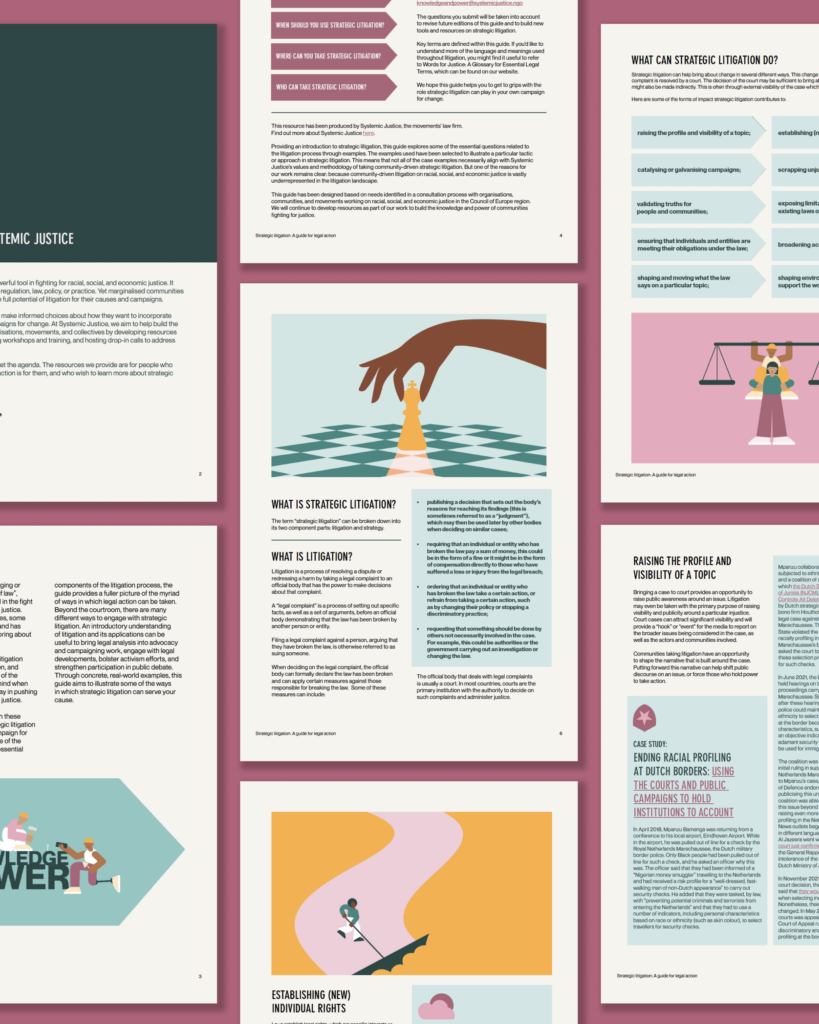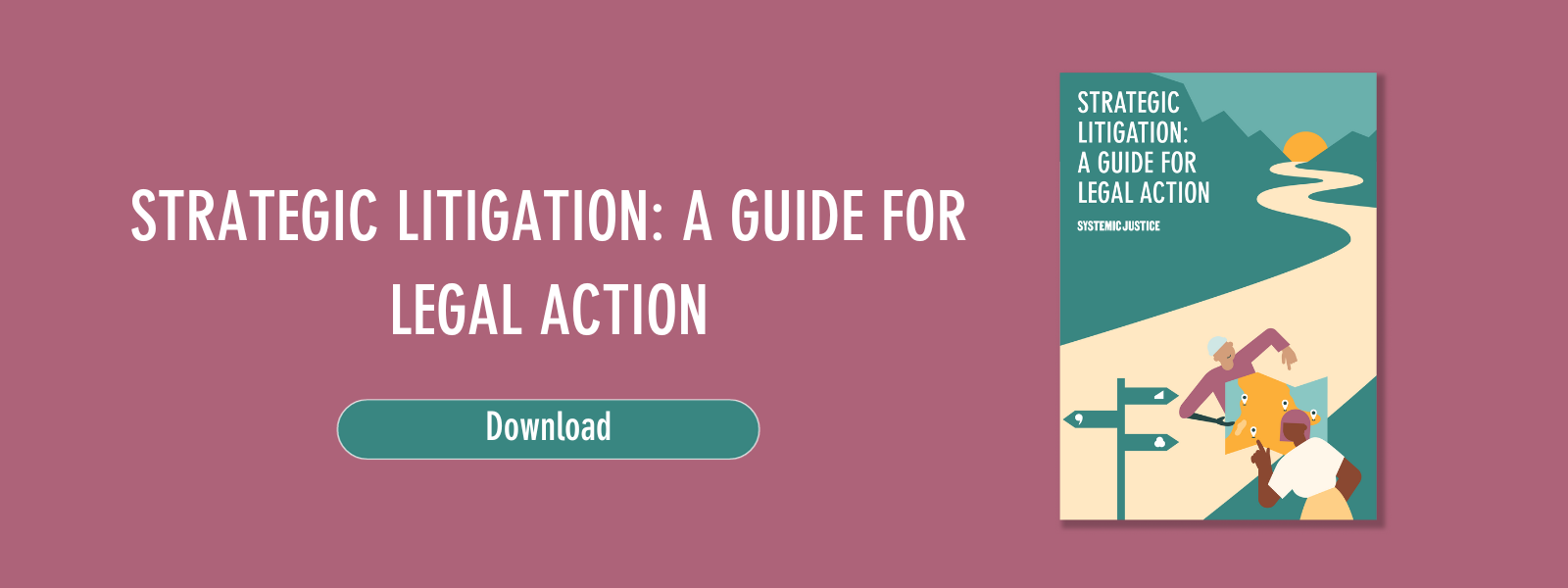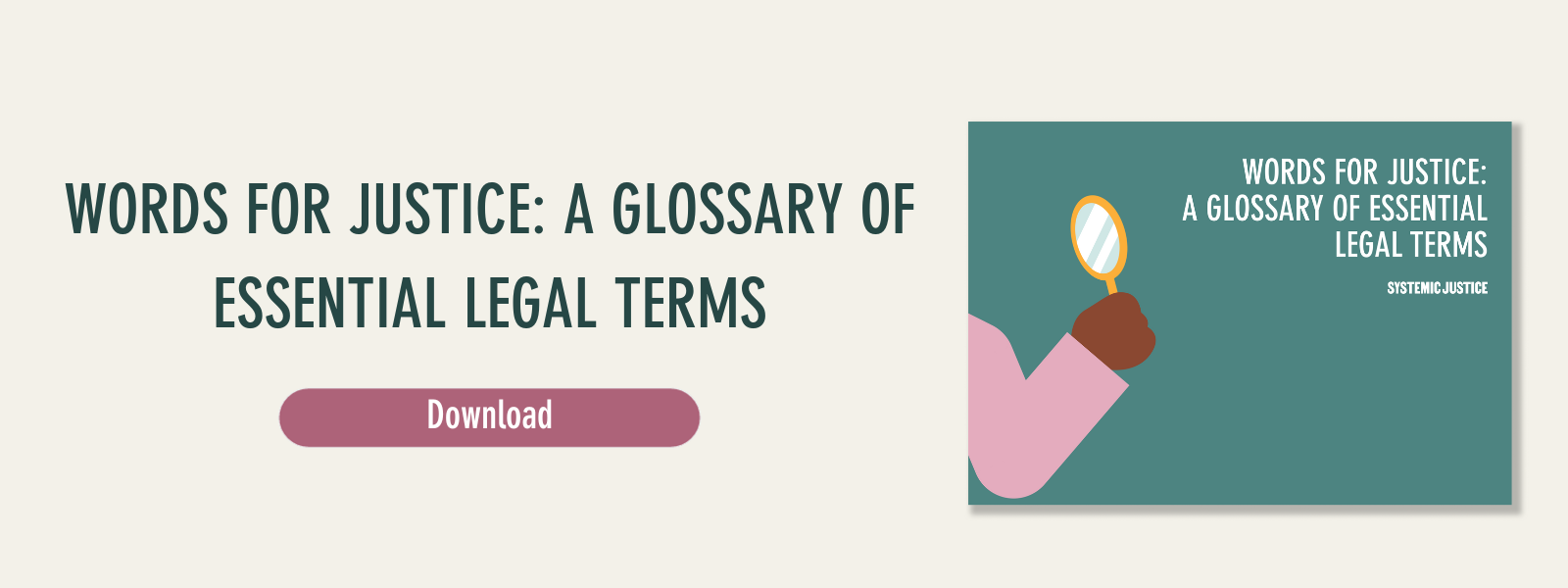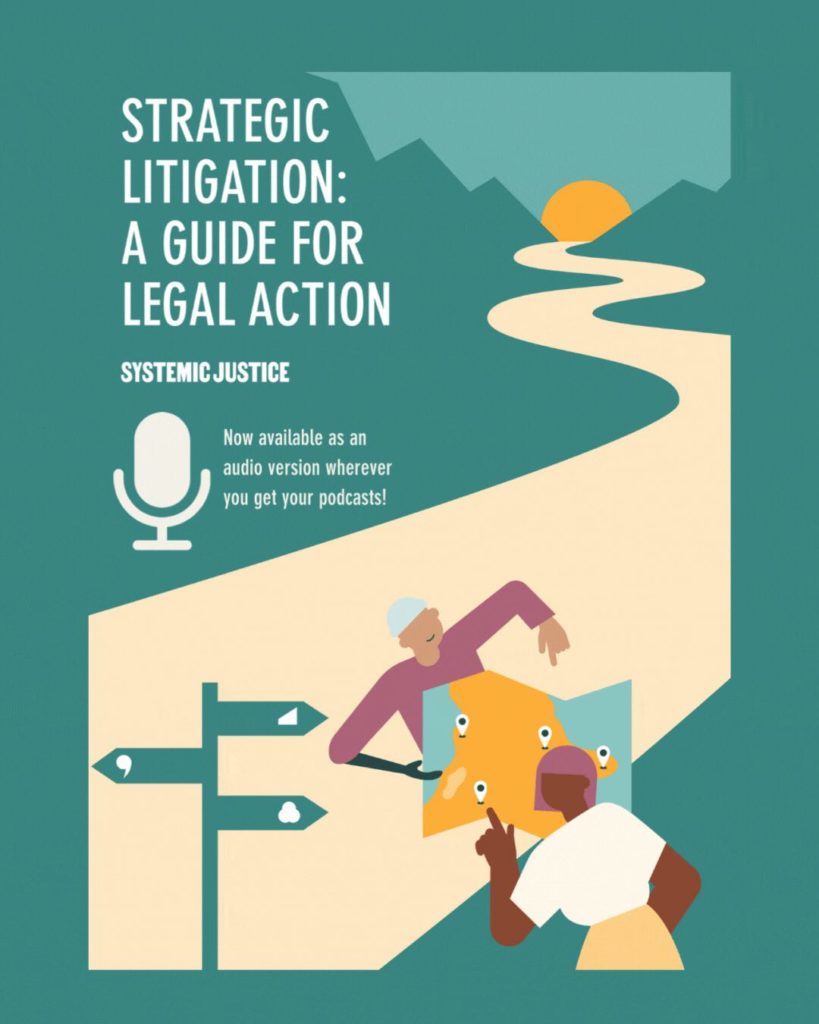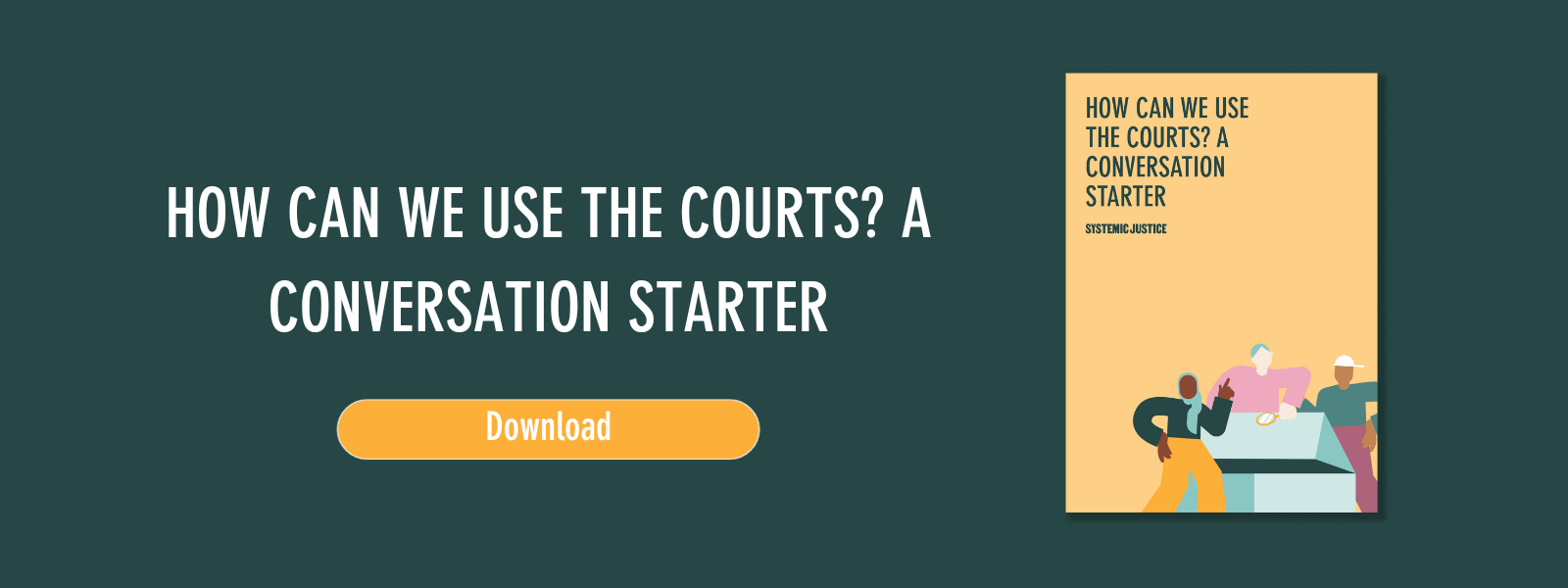Community toolkit for change: resources for leveraging the courts
How can communities and movements use the courts for their causes and campaigns?
Systemic Justice has designed a series of resources to help answer this question and build the knowledge and power of communities and movements fighting for justice.
Strategic litigation: A guide for legal action
Defined as the “process of bringing or defending a lawsuit in a court of law”, litigation can be a powerful tool in the fight for racial, social, and economic justice. Litigation involves various stages, some more well-known than others, and has many different applications to bring about systemic change.
Understanding what strategic litigation is, what it can do, and how, when, and where it can be used are some of the key considerations to have in mind when thinking about the role it can play in pushing for racial, social, and economic justice.
This guide will walk you through these essential components of strategic litigation and what it can do for your campaign for change, both inside and outside of the courts.
By breaking down the essential components of the litigation process, the guide provides a fuller picture of the myriad of ways in which legal action can be taken.
Beyond the courtroom, there are many different ways to engage with strategic litigation. An introductory understanding of litigation and its applications can be useful to bring legal analysis into advocacy and campaigning work, engage with legal developments, bolster activism efforts, and strengthen participation in public debate. Through concrete, real-world examples, this guide aims to illustrate some of the ways in which strategic litigation can serve your cause.
The guide won’t outline strategic litigation through an academic lens, or with complex legal analysis. Instead, you’ll find a resource rich in practical applications from real cases, illustrating the many legal strategies serving campaigns for change around the world. We’ve prioritised clarity and accessibility with this easy-to-use tool that brings you different uses of strategic litigation to support the fight for racial, social, and economic justice.
Download “Strategic litigation: A guide for legal action” here or by clicking below.
Words for justice: A glossary of essential legal terms
Legal terminology, sometimes referred to as “legalese”, can often feel like a language of its own. The many words, terms, and expressions that are used by legal professionals to talk about legal processes and the courts can appear to make things harder, rather than easier, to understand. Access to this knowledge is often mediated by lawyers or legal advisors, which can lead to unequal relationships between communities seeking justice and their legal counsel.
Communities and movements are made up of many voices and experiences. When working together to drive racial, social, and economic justice through the courts, we need to have a shared understanding of words and their meanings.
This resource helps communities understand legal terminology so they can consider legal tools and integrate them in their campaigns for change, on their own terms. An understanding of legal terminology is important for communities to sit firmly in the driver’s seat of strategic litigation and, beyond undertaking litigation itself, can also be useful to:
• integrate legal analysis in advocacy and campaign work;
• engage with legal developments in the courts;
• strengthen activism strategies;
• participate in public debate.
Legal knowledge shouldn’t exclusively sit with lawyers or legal advisors. When it does, it cannot serve justice for all. Legal knowledge should be at the service of causes, campaigns, and communities fighting for racial, social, and economic justice.
Download “Words for justice: A glossary of essential legal terms” here or by clicking below.
How can we use the courts: A conversation starter
This is a simple document with questions that you can bring into community spaces and meetings with the intention of starting a collective conversation about how taking cases to court can play a role in your fight for racial, social, and economic justice.
In six questions, it takes you from your dream vision for change to actionable steps that can become part of a potential litigation strategy. It is not meant as a substitute for legal advice, but will be a useful starting point for conversations with your community.
We recommend using this document alongside “Strategic litigation: A guide to legal action” and working through the questions together without lawyers or other organisations present. It is not designed to replace legal advice, but rather act as a conversation starter for your community to think through key aspects of a legal strategy prior to engaging lawyers and other potential partners about taking cases to court.
If you would like to explore any of these questions further, you can always email Systemic Justice’s legal team at knowledgeandpower@systemicjustice.ngo to explore how to make your community-driven case a reality.
Download “How can we use the courts? A conversation starter” here or by clicking below.
«Recours statégiques en justice: le guide» et «Aller en justice ? Des clés pour en parler» sont disponibles en français:
«Litigio estratégico: guía para emprender acciones legales» y «¿Cómo podemos recurrir a los tribunales? Guía de inicio rápido» están disponibles en español:
“Strategiske Retssager: En Vejledning” og “Hvad kan vi bruge domstolene til? En samtalestarter” er nu tilgængelige på dansk:
“Stratejik Davalama: Hukuki Süreçlere Dair Rehber” ve “Kollektif Tartışmaya Zemin Hazırlamak: Mahkemelerden Nasıl” artık Türkçe:
’التقاضي الاستراتيجي: يتوفرُ كل من دليل اتخاذ الإجراءات القانونية‘ و’سبل اللجوء إلى القضاء: نقطة انطلاق للحوار‘
باللغة العربية:
'Dacwad Istaraatiijiyadeed: Haggaha tallaabo sharci' iyo 'Sidee u isticmaali karnaa maxkamadaha: Wadahadal bilaabe' ayaa ku diyaar ah Af-Soomaali:
”Strategisch procederen: een gids voor juridische actie” is beschikbaar in het Nederlands:
Strategic litigation: A guide for legal action now available as a podcast
